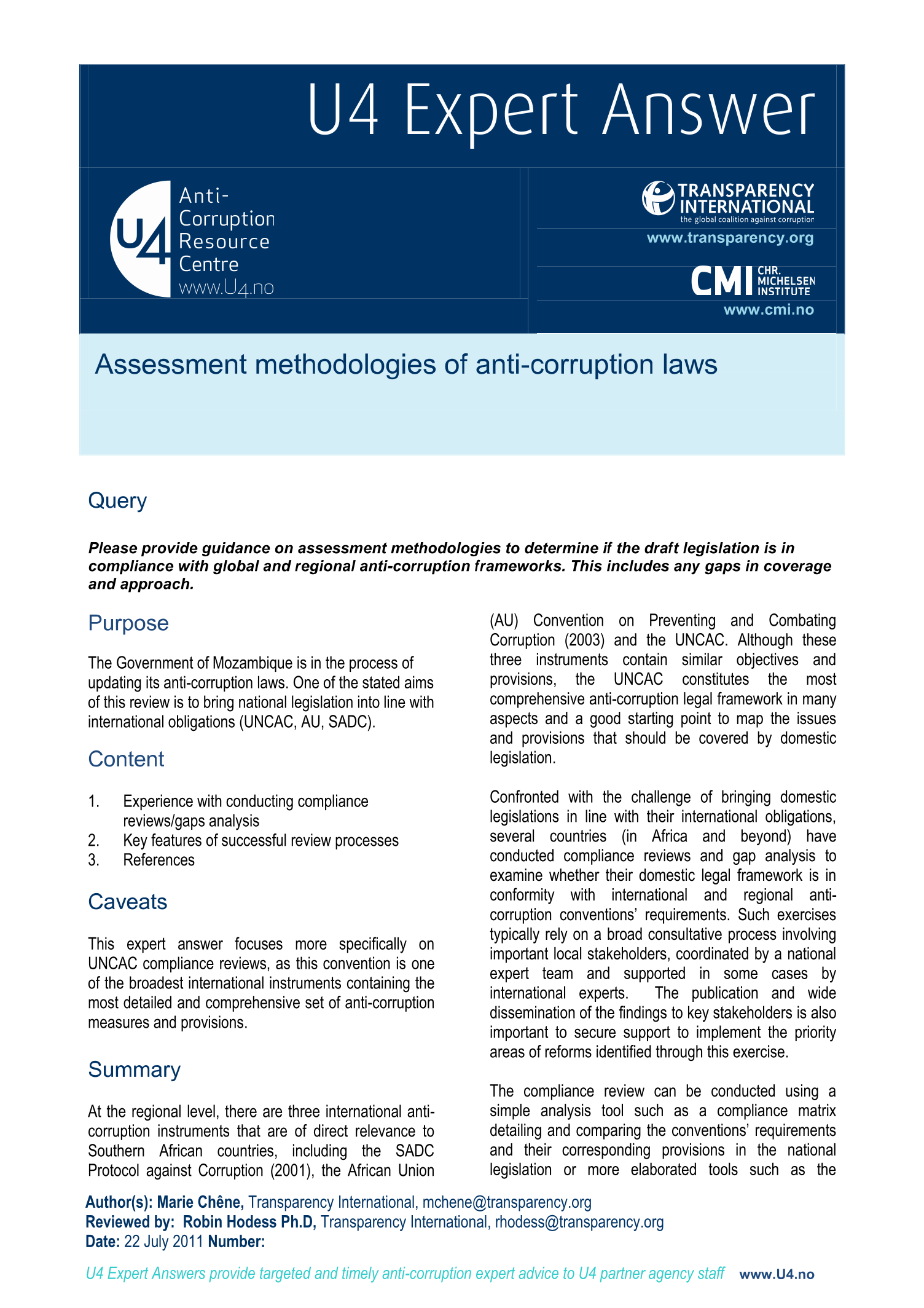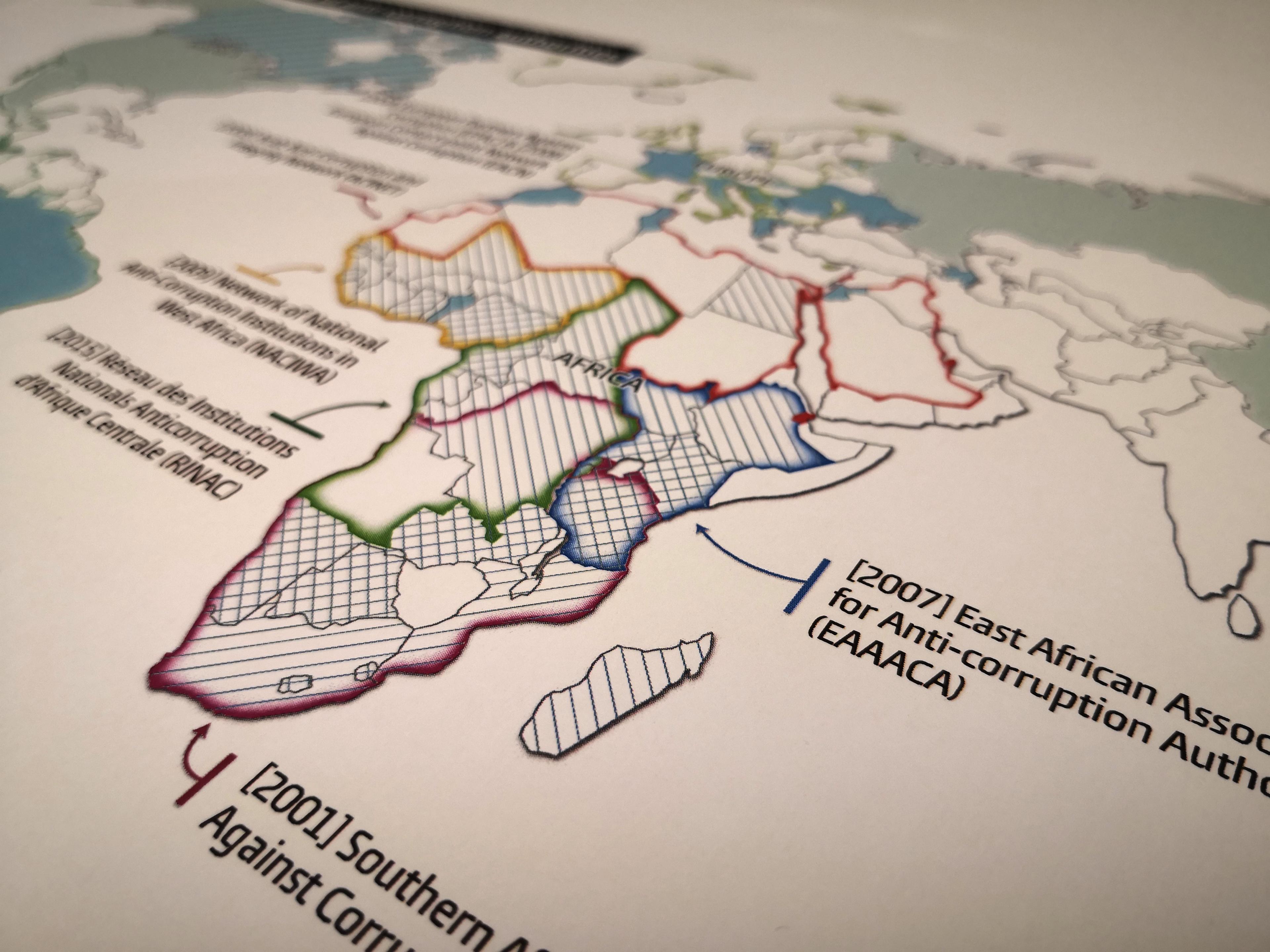U4 Helpdesk Answer
Assessment methodologies of anti-corruption laws
At the regional level, there are three international anticorruption instruments that are of direct relevance to Southern African countries, including the SADC Protocol against Corruption (2001), the African Union (AU) Convention on Preventing and Combating Corruption (2003) and the UNCAC. Although these three instruments contain similar objectives and provisions, the UNCAC constitutes the most comprehensive anti-corruption legal framework in many aspects and a good starting point to map the issues and provisions that should be covered by domestic legislation. Confronted with the challenge of bringing domestic legislations in line with their international obligations, several countries (in Africa and beyond) have conducted compliance reviews and gap analysis to examine whether their domestic legal framework is in conformity with international and regional anticorruption conventions’ requirements. Such exercises typically rely on a broad consultative process involving important local

Cite this publication
(2011) Assessment methodologies of anti-corruption laws. Bergen: U4 Anti-Corruption Resource Centre, Chr. Michelsen Institute (U4 Helpdesk Answer null)
Disclaimer
All views in this text are the author(s)’, and may differ from the U4 partner agencies’ policies.
This work is licenced under a Creative Commons Attribution-NonCommercial-NoDerivatives 4.0 International licence (CC BY-NC-ND 4.0)


